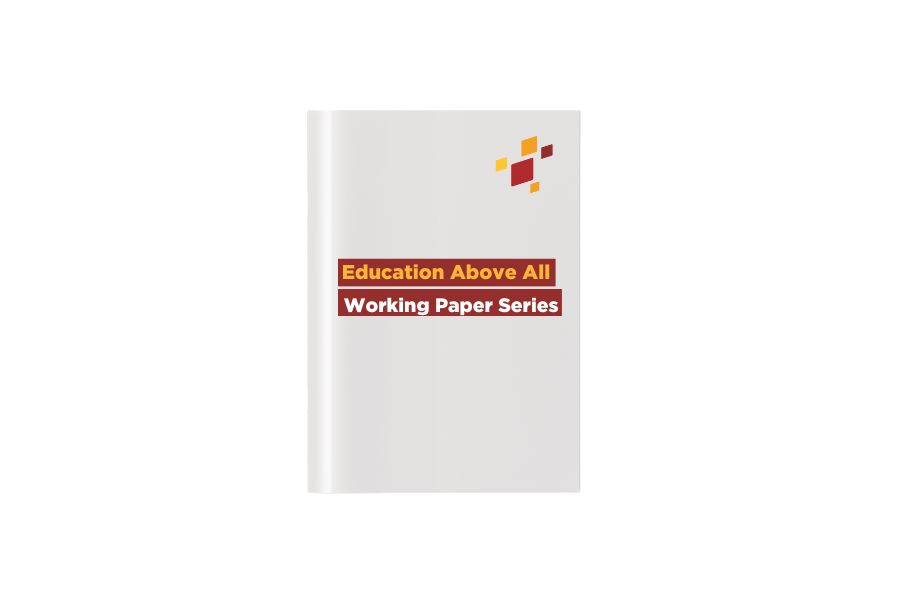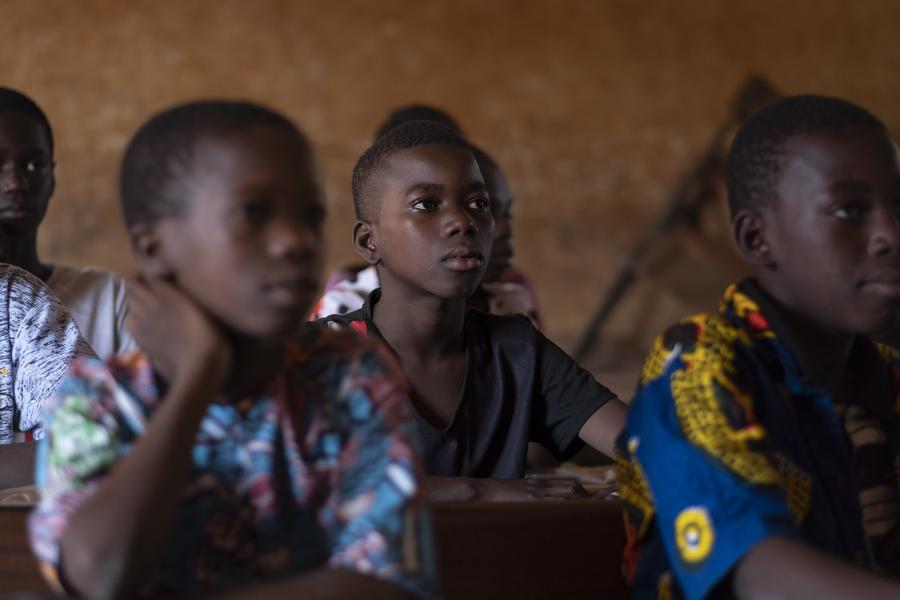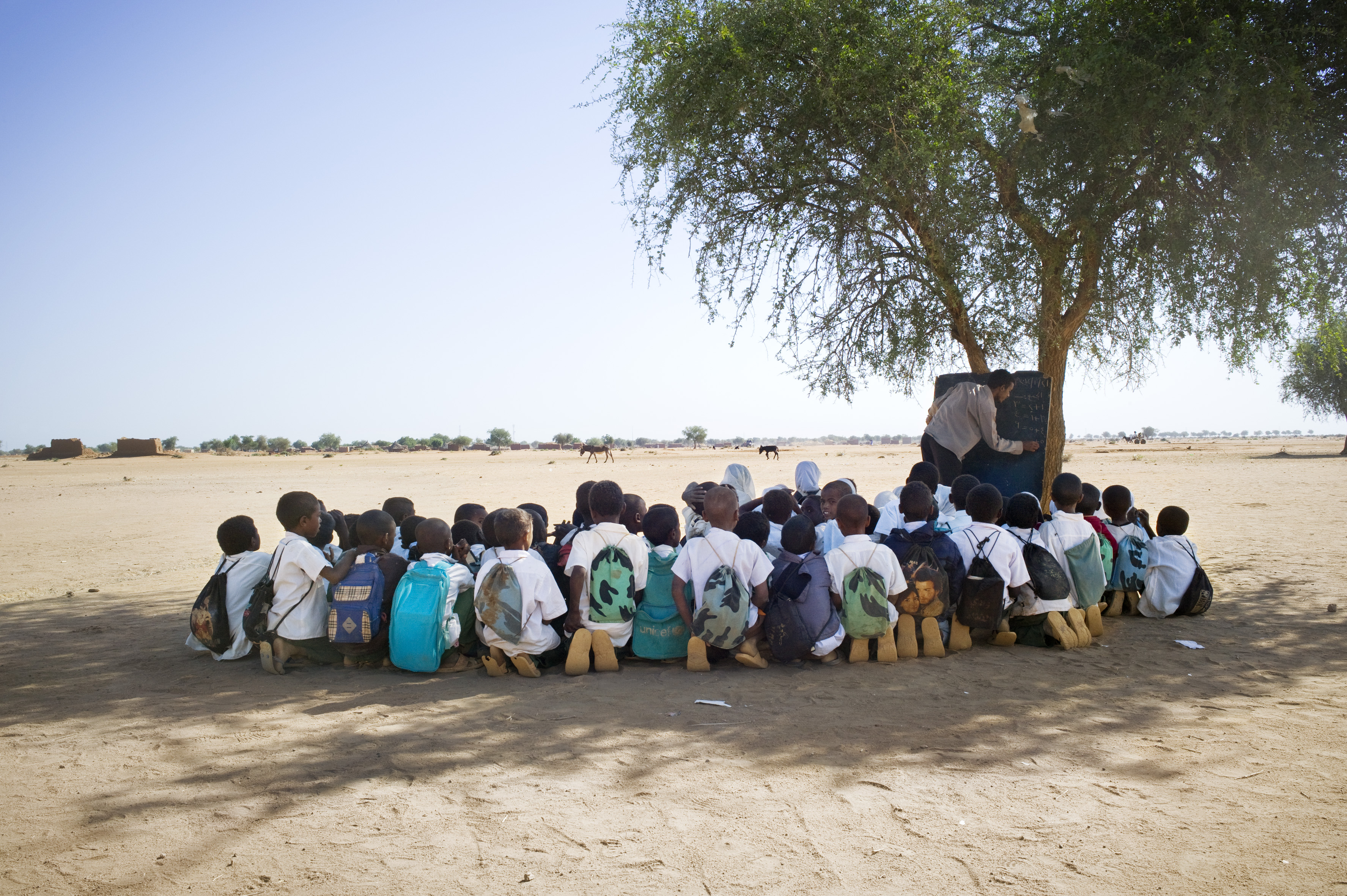
Themes

EAA Working Paper Series
Dynamics of Education in Post-Conflict Somalia: The Case of out of school Children in Mogadishu
Authors: Dr Abdifatah Ismael Ismael Tahir, Dr. Logan Cochrane
Abstract
In this paper, we explore the critical issue of out-of-school children, a topic that has hitherto received scant attention in Somalia and other conflict or post-conflict settings. Our objective is to shed light on the multifaceted factors contributing to its occurrence and perpetuation. These include protracted conflict, substantial economic barriers, and deep-seated cultural prejudices. By focusing on Mogadishu – a city notably encumbered by the dual burdens of conflict and displacement and has consequently become a focal point for international aid –, we show that the issue of out-of-school children is emblematic of broader social, economic, and political processes. To address the root causes, therefore, interventions require a more strategic and politically salient approach that contextually considers both the technical and political dimensions of the problem. Data for this paper was gathered through a qualitative approach. Desk research, which involved a comprehensive review of existing literature and document analysis, formed the foundational layer. To complement this, key informant interviews were employed to obtain direct insights from educators, policymakers, community workers, and professionals who have first-hand experience with the educational challenges in Somalia.
Keywords: Somali, Mogadishu, education, out-of-school children, conflict, and post-conflict
Disrupted education a view from inside Syria: Critical literature review and lessons for policy and practice
Authors : Suzanne H. Hammad, Ph.D, Dr. Logan Cochrane
Abstract
UNSDG 4 seeks inclusive and quality education for all. However, over 250 million children and youth worldwide are not in school. Military conflict is a root cause, and the case of Syria is a case in point, yet one for which limited research exists. This critical review assesses the available evidence on the causes and consequences within Syria according to SDG dimensions of access, quality, and inclusion. The challenges identified require attention to systems, not just symptoms as well as integrated interventions that address the diverse needs of children and youth. Attention to the education system in Syria is additionally important as it is expected that millions of refugees may return to Syria, putting demands on an already inadequate system. Utilizing available evidence, and scaling up based on lessons learned, is critical for meeting the needs of Syrian children and youth.
Out-of-School Children in Ethiopia: Impacts of Climate Change and Political Instability
Authors: Tesfaye Semela and Ph.D, Dr. Logan Cochrane
Abstract
Education is a human right and all children are entitled quality and inclusive education no matter where they are. However, more than 30 million children and adolescents in sub-Saharan Africa are being denied this right, while the underlying reasons are not sufficiently investigated. The present article goes beyond depicting out-of-school rates by addressing the practical observations of educational practitioners and researchers with hands-on experience. The study is based on a reanalysis of education statistics, and data from government reports, a scoping literature review, and semi-structured interviews and follow-up survey with education experts and educational researchers. The findings show that climate-induced environmental emergencies, armed conflict, and household food insecurity are the most important factors to addressing educational opportunities for all children and adolescents in Ethiopia. Finally, the study forwards a short- and long-term policy suggestion that helps to ensure the educational rights of children and adolescents in Ethiopia and beyond.
Keywords: Climate Change, Child Education, Conflict, Environmental Stressors. Food Insecurity Out-Of-School-Children, Ethiopia.
Out of School Children in the Context of New Policy Trajectories and Interlocking Crises in Zimbabwe: A Transformative Social Policy Perspective
Authors : Clement Chipena and Ph.D, Dr. Logan Cochrane
Abstract
In the past two decades, Zimbabwe has experienced an upsurge in cases of children and the youth who drop out of school (OOSC). Emerging evidence suggests that children and the youth who drop out of school reach up to a million, and this translates to half of adolescents in the country aged between 13 to 19 years. Despite the high incidence of OOSC, limited research has been undertaken. To address this research gap, this paper triangulates data from different sources to explore the prevalence and geographical disparities of OOSC; its main causes and its nexus with the currently prevailing multiple crises; and to explore the policy and legislative framework. In doing this, the paper utilises the political economy-oriented idea of transformative social policy as its theoretical framework with education policy being viewed within the ambits of social policy. Our analysis notes that despite the existence of a robust policy and legislative framework, the prevalence of OOSC is very high and, in most instances, it is linked to the multiple crises and socio-economic dynamics. Geographical, wealth, social, religious, cultural, and economic disparities are shown as contributing to the high prevalence of OOSC. From lessons learnt, we provide several recommendations to deal with the scourge of OOSC. These are crystallised around the need to develop a social contract that prioritises the fulfilment of rights, obligations, social justice, social engagement, human capacity, agency, and the re-establishment of a synergetic relationship between social and economic policies and the transformation of social institutions and structures.
Keywords: education, out of school children, social contract, transformative social policy, Zimbabwe













